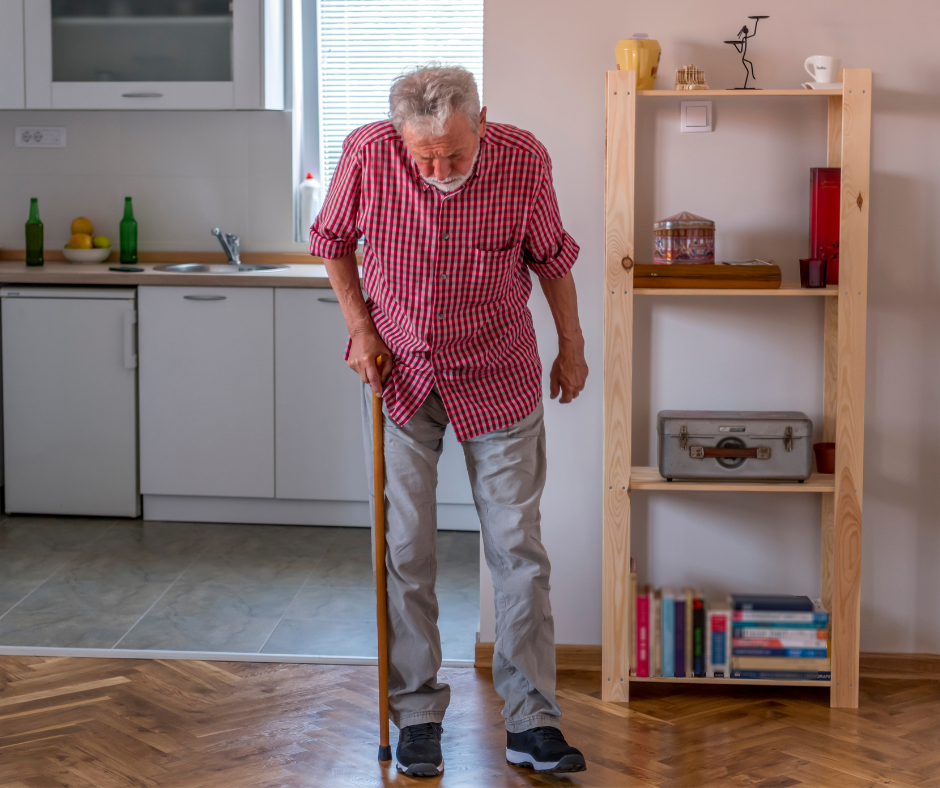
Our bodies go through a lot of wear and tear as we age. Aches and pains are very common, and because balance tends to get worse over time, falling becomes a real concern. When those pains or falls are serious, an orthopedic procedure can be the solution. Each year more than a million hip and knee replacements happen in the U.S – the majority of which are performed on older adults. Millions more visit physicians specializing in orthopedics, often to be monitored for future needs.
Recovering from those procedures is no treat regardless of your age. But for seniors, the recovery process can be especially tricky and have greater consequences on long-term health. In this article, we’ll discuss why the recovery period is so important for seniors and why it can make sense to bring in a caregiver to help with the process.
Why the recovery period is so important
Recovery is crucial for seniors for one major reason – the risk of going back to the hospital. This is a unique problem for seniors for a few different reasons: the increased risk of falling, lack of compliance, and reduced ability to perform the activities of daily living (ADLs):
- Risk of falls – More than 95% of hip fractures are caused by falling. And falling once doubles the chances of falling again. Seniors recovering from a procedure often try to continue doing things for themselves, which can easily lead to falls. During recovery, it can be difficult to keep up on housekeeping, which can mean trip hazards around the home. Falling again can set back the recovery process, and it can lead to going back to the hospital or worse. Falls are the most common cause of traumatic brain injury, and one out of five falls causes a serious injury such as broken bones or a head injury.
- Lack of compliance – According to the New England Journal of Medicine, nearly 20% of older Americans who had been discharged from the hospital were re-hospitalized within 30 days, and more than one-third were re-hospitalized within 90 days. Falling isn’t the only cause – many seniors aren’t compliant with medications, physical therapy instructions, and other doctor-directed activities designed to aid in their recovery. These instructions can be complicated to adhere to without help.
- Reduced ability to perform ADLs – After a surgery, many older adults experience lowered ability to perform the daily activities of life such as bathing, using the restroom, and feeding themselves. Without help with these activities, health can deteriorate significantly and lead to rehospitalization. A study published in The Gerontologist explains: “One in four hospitalized patients return home with unmet need for new or existing ADL disabilities. Unmet ADL need increases the risk for readmission, especially among patients who report unmet needs for recently acquired ADL disabilities. It is well documented that hospitalization is associated with the declines in ADL functioning. Many hospitalized older adults are discharged with new or worse activities of daily living (ADL) disabilities from which they do not recover in the months after discharge.”
Fall prevention measures, help to stay compliant with the recovery instructions, and assistance with ADLs can go a long way toward helping your parent or loved one recovery as quickly as possible. But if you as the family caregiver don’t have the time to dedicate to this process, a professional caregiver can be an incredibly beneficial addition to your care team.
How in-home care works with orthopedic recovery
On a basic level, in-home caregivers provide things like companionship, transportation, help with errands, household chores, personal hygiene, and meal preparation. This service is valuable for any senior who wants to stay independent in their home. But many of our caregivers are trained to understand the unique needs of those recovering from an orthopedic procedure. Orthopedic recovery is one of our eight specialty programs, and the training they receive includes:
- Education on the types of common orthopedic procedures such as hip and knee replacements, the body mechanics involved, and how to identify and avoid potential post-surgical complications
- Modifications to client ADLs to prevent post-surgical falls and hospital readmission
- The caregiver role in pain management, including how to observe and report signs, symptoms, and side effects, assist with non-drug treatments, and how to help clients prevent and manage pain
- Benefits, guidelines, and techniques for helping clients with rehabilitative and preventative range of motion exercise as prescribed by a physical therapist
- How to assist clients with physical therapist-prescribed post-procedure exercise programs to meet recovery goals and increase mobility and independence
A caregiver can help with medication reminders, getting your parent or loved one to follow-up appointments, and keeping the house clear of any trip hazards. They can also provide much-needed companionship and socialization that your loved one may be missing if they are home-bound during the recovery process.
Before care begins, we perform a complimentary and personalized needs assessment, during which special care is taken to assign a caregiver who has the experience to meet the needs of your loved one. Our goal is to keep care consistent as well as work toward matching your parent with a caregiver who best suits your loved one’s personality. We also perform a home evaluation to ensure that your loved one is as safe as possible in their home.
Conclusion:
A caregiver can provide a much-needed break for family members while ensuring your parent stays safe and compliant with their doctor’s recommendations to avoid rehospitalization. Because they are specially trained, you’ll have peace of mind that your loved one will recover as quickly as possible.
If you’d like to learn more about our Orthopedic Recovery Specialty Program and see if we’d be a fit for your situation, please reach out using this form to schedule a complimentary discovery call. A client service specialist would be happy to answer any questions you may have.